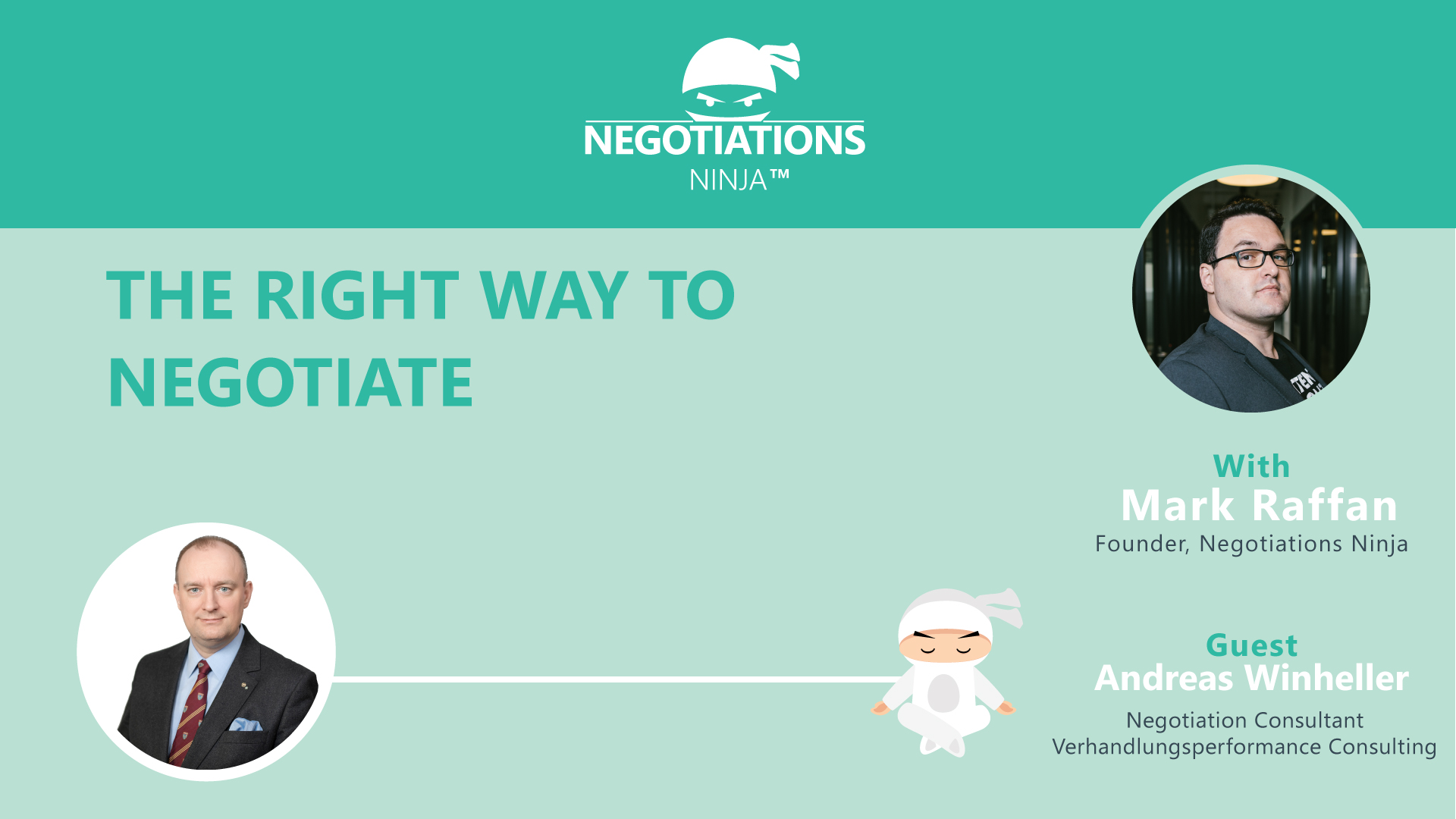Is there one right way to negotiate? Is one methodology superior to the other? For the last 30+ years, “Getting to Yes” was the book on negotiation. More recently, “Never Split the Difference” has become the book on negotiation.
The vast majority of people read the top-selling book(s) in a category and think they’re fully educated. That’s just impossible. In this episode of Negotiations Ninja, Andreas Winheller, a negotiation consultant and trainer, shares why no one way is the “best” way.
Outline of This Episode
- [1:48] Learn more about Andreas Winheller
- [2:28] The cultural differences at play
- [4:32] The two main approaches to negotiation
- [8:47] The economic-grounded negotiation approaches
- [12:14] Rational versus irrational negotiation
- [20:18] Account for decision fatigue
- [25:47] The upcoming training with Gary Noesner
The two main approaches to negotiation
“Getting to Yes” was the Harvard Bible. It’s universally applicable, but when you try to implement it in real-world business negotiations, you realize it’s only one perspective. Chris Voss wrote his book from the perspective of a hostage negotiator (using FBI techniques in crisis negotiations), and that became the new go-to framework.
Negotiation is a craft. Andreas emphasizes that if you want to become a master craftsman, you have to travel the world, learn from other master craftsmen, learn other techniques, and collect every piece of information where it’s available. There isn’t a single book or method that is the one right way.
A negotiation style can’t be equated with religion. You can deviate from your negotiation dogma. There is no “one” way to do this. Too many people get wrapped up in taking one approach religiously.
The economic-grounded negotiation approach
When you negotiate a contract, you optimize an economic transaction. Value creation, contingency deals, etc., are important. They help a business make money. From an economic perspective, this is a rational approach. That’s what Harvard, Stanford, etc. focus on.
If money makes a difference, it’s important. But you have to deal with real people—and not AI—you have to be able to influence them to reach your goals. If there’s anything we know, we know that humans don’t act rationally.
Rational versus irrational negotiation
In his book “Misbehaving,” Richard Thaler described an investment firm whose stock market ticker was “CUBA.” The firm didn’t invest in Cuban companies. It had nothing to do with Cuba. It is an investment only available to professional traders.
But when President Obama announced his intention to relax the United States’ diplomatic relations with Cuba, its stock price jumped 70% overnight. That’s not rational. The world is full of that.
Richard Thaler said that people are less like Commander Spock and more like Homer Simpson. Humans are irrational and emotional. If you treat them rationally, you won’t get the results you desire. You have to integrate both approaches to reach your economic goals.
You can’t simply negotiate on mathematics. Your strategies must address real people and real human needs, especially unconscious emotional processes in the brain. The truth is that there is no right way to negotiate. Learn more about negotiating from both perspectives in this episode of Negotiations Ninja.
Resources & People Mentioned
- Misbehaving: The Making of Behavioral Economics
- Experiencing Physical Warmth Promotes Interpersonal Warmth
- Extraneous Factors in Judicial Decisions
Connect with Andreas Winheller
- Connect on LinkedIn
- Verhandlungs Performance
Connect With Mark
- Follow Negotiations Ninja on Twitter: @NegotiationPod
- Connect with Mark on LinkedIn
- Follow Negotiations Ninja on LinkedIn
- Connect on Instagram: @NegotiationPod




